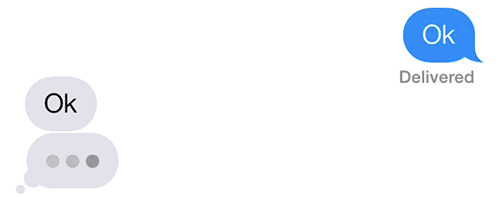iMessage Is Not Android's Problem
Your mother has sent you and your sister a photo of their dog, and expects you to reply with a positive note back. But you have an Android device and you're using Google Voice. You get the message, but you don't get the photo. Your mom gets mad that you've not replied. You say it's because she's using iMessage and photos and videos won't be sent to devices unless they also have iMessage. She tells you to get iMessage. You can't get iMessage, you have an Android device. You see where this is going.
The good thing about messenger apps like Apple's is the fact that you're going to be able to avoid "text message" costs by sending via Wi-Fi.* The negative effect is that we're moving away from a single, central system like TXT or SMS, and toward a more scattered set of ecosystems with apps and services of all sorts.
*That's IF your carrier still charges you for text messages. So sad.
Apple adds 2-step authentication to iMessage, FaceTime
NOTE: If you're in the situation described in the first paragraph, there is another solution. You can tell your mother to send photos to the number assigned to your smartphone specifically, rather than your Google Voice number. Just as complicated. You'll also (sometimes) find that video and photos sent to a Google Voice number are emailed to you instead.
If you have an iPhone and one of your family members has an old-school non-smart phone, they're still getting charged for text messages more than likely. Not only that, if you're sending long messages, they'll likely be receiving them in parts, with sentences cut up after so many characters, one after the other.
A lack of iMessage is not your Android device's issue.
Nor is it Apple's issue.

Apple has a solid ecosystem that's not about to be shattered and shared with Android just so your friend can connect with you through FaceTime. Apple has a giant web of devices and services that all tie together – they're not losing customers because their apps only work on iOS.
BlackBerry didn't lose customers because BlackBerry Messenger (BBM) didn't work on Android or iOS. In reality, BBM was one of the reasons why BlackBerry had hold-outs and long-lasting fans when they first started to be beat down by the iPhone and Android devices.
Once BlackBerry got to the point where their hardware was no longer selling, then, and only then, did they bring BBM apps to Android and iOS.
Praise be! Apple fixes iMessage's biggest snafu
For "FaceTime" with your friends, if you're on an Android device, we recommend checking out Facebook Messenger. You and your friends will need Facebook accounts, but once you do, the Facebook Messenger app works very well for video chat.
If you have a child who has friends with iPads that connect with one another with iMessage, you might be in a pickle. If your kid's friends refuse (or are unable) to use any other app for messaging, you only have three options:
1. Get an iPad (or an iPod touch, or an iPhone).
2. Get them a smartphone with a phone number.
3. Resign to the fact that your kid won't be sending messages to their friends at 2 in the morning.
Apple's iMessage is an example of an ecosystem they've created that's stuck. It's stuck very, very well, and it's not going away any time soon. Unfortunate for you, that means your friends will probably continue to request that you buy an iPhone.
Unless you can convince them all to use WhatsApp. There's that, too.
